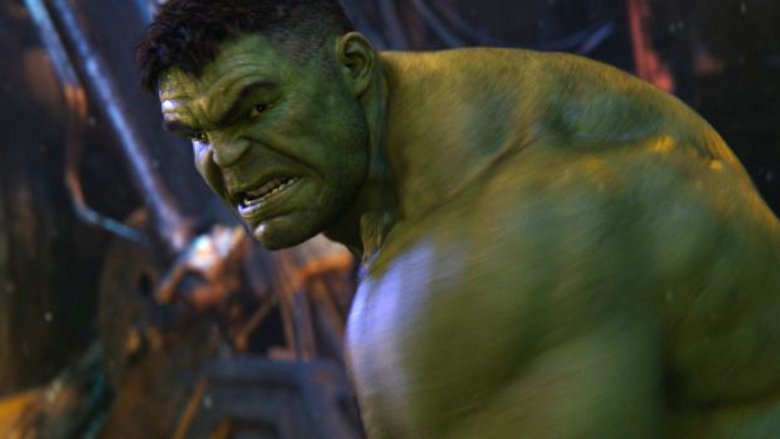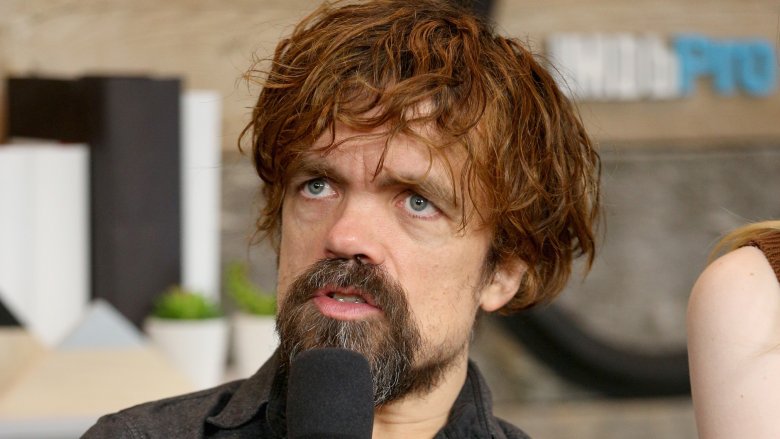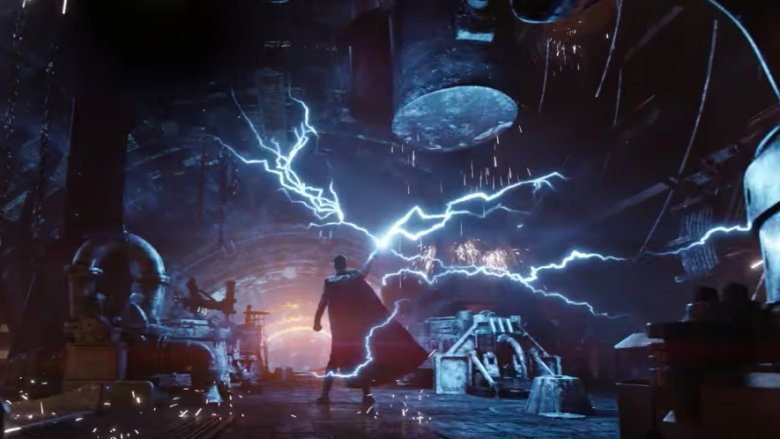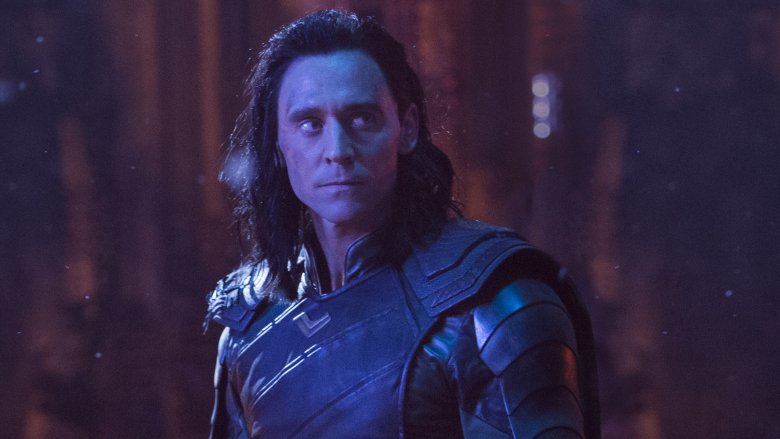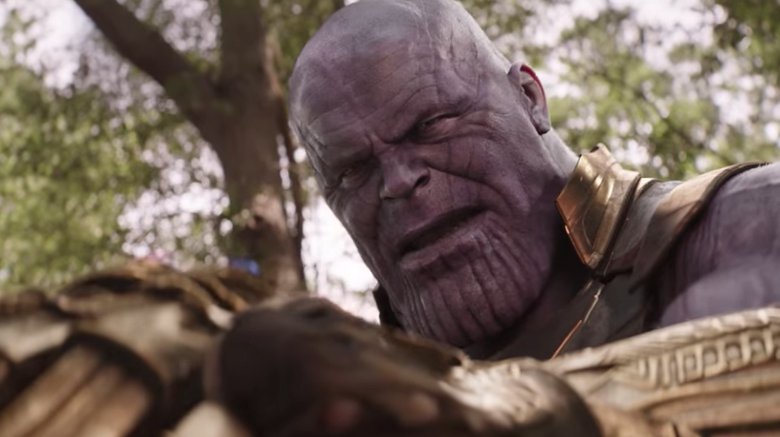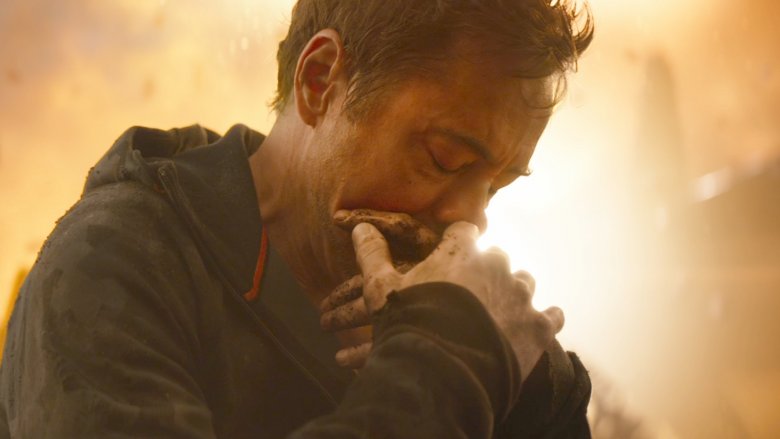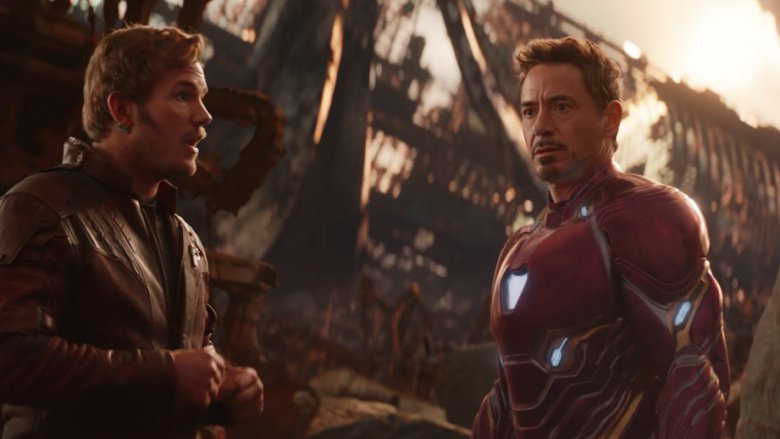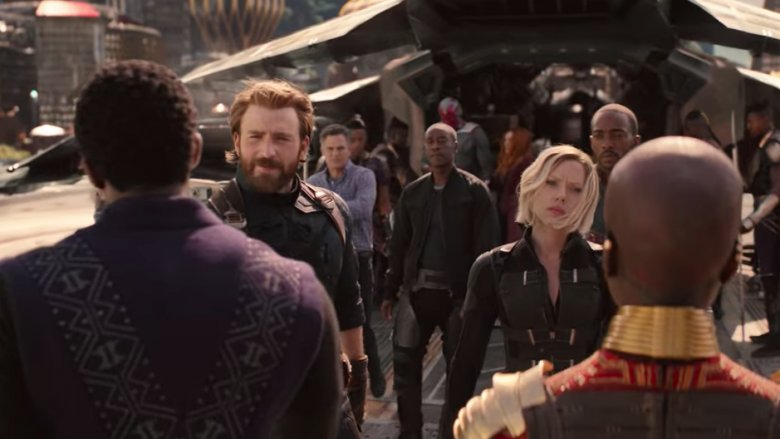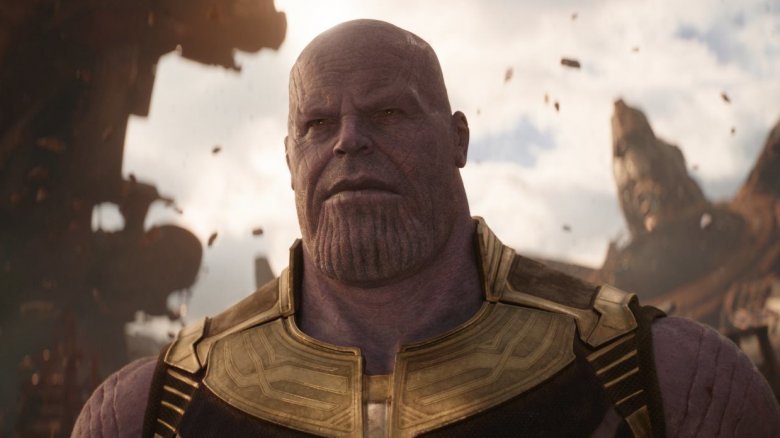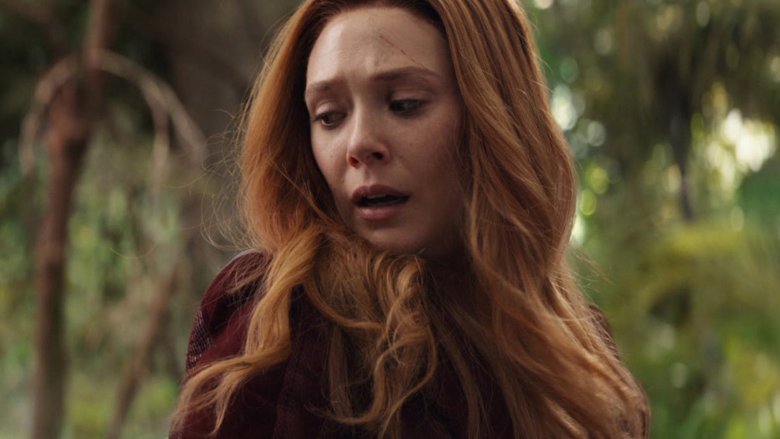Avengers: Infinity War's 5 Best And 5 Worst Things
It's here. The biggest superhero movie of all time (for now) has finally dropped. Avengers: Infinity War is the payoff of ten years of storytelling done over the course of nearly 20 films. The film follows the Avengers, the Guardians of the Galaxy, and a smattering of other superheroes as they take on the Mad Titan, Thanos, who seeks to assemble the Infinity Gauntlet with the intent of wiping out half of all life in the universe.
That obviously doesn't bode well for, uh, the universe, so our heroes have to step up and do everything they can to stop him. The film is a funny, action-packed, and ultimately bittersweet romp that somehow pulls off the ambitious balancing act it sets out to accomplish. By the time it ends, our heroes and the universe they inhabit have been forever changed. It isn't perfect, but then again, it's far from a failure. Watch out for heavy spoilers, because these are the five best and five worst things about Avengers: Infinity War.
Best: Hulk meets his match
You've got to start a movie like Infinity War off with a bang — and oh boy, do directors Joe and Anthony Russo start this one off with one heck of a wallop. We open on the aftermath of Thanos' assault on the Asgardian refugee ship, but the tides seem to turn when Loki informs Thanos "We have a Hulk." The slugfest of the century follows, albeit one that doesn't quite go the way you'd think.
The Russos never seem more at home as filmmakers as they do when they're filming a small-scale fistfight. It's what makes the elevator sequence in Winter Soldier and the climax of Civil War so great. In Infinity War, they finally pit Hulk against Thanos in a fight, and the big green dude meets his match. It's not just that the sequence is well-choreographed and well-shot, it's that it reveals character on both sides. We've seen Hulk wreck every hero in the MCU, but in this fight it becomes clear that it's only because nobody can match his strength. Because he has that to fall back on, he's never had to actually learn to fight — just smash. Thanos is just as strong as Hulk, with the added bonus of combat skills. He dismantles Hulk fast and it's a genuinely shocking moment, something we never thought we'd see. In other words, exactly the kind of scene to open the biggest superhero movie of all time.
Worst: A bad perspective
Game of Thrones actor Peter Dinklage shows up in Infinity War as the giant dwarf who forged Thor's hammer. Marvel has a pretty good track record with CGI transformations, be it shrinking Chris Evans down to 90 pounds or turning Mark Ruffalo's motion-captured Hulk performance into a believable CGI character, it's one of their stronger suits. Unfortunately for Dinklage, his character doesn't get that treatment in Infinity War.
It all comes down to perspective. In order for an audience to properly gauge size differences between characters, we need to see them standing in the frame with one another. It allows for the eye to assess the proportions of the characters onscreen, and it's especially crucial when dealing with characters who are intentionally enlarged or shrunk. Unfortunately, while we can see that Dinklage's character is a giant, we don't see him standing next to Rocket or Thor nearly enough to fully gauge his size. As a result, there's no perspective for the character's build, which makes the special effects seem far less fine-tuned. It also creates a jarring unease whenever he's in the frame. The eye can't help but notice that something is off about him because of the lack of perspective. It's an unfortunately amateur move from a film studio that should absolutely know better at this point.
Best: Thor shines
Chris Hemsworth is a standout performer in the MCU, but the first two Thor films never really clicked with fans. They're just not as beloved as the Iron Man or Captain America films. Thor: Ragnarok proved to be an exception, but it also removes Thor entirely from the world he inhabits in his first two films. Hemsworth has never been the problem, though — and in Infinity War, he finally takes the ball and runs with it.
Thor is easily the film's standout character, due to Hemsworth's performance and his odd-couple pairing with Rocket Raccoon. The two parade off into space with Teenage Groot in tow in order to find a new hammer for Thor. Their pairing is funny and heartfelt, but rather than being played for nonstop laughs, it pulls back and puts in perspective just how much Thor has lost over the course of these movies. Everyone he loves is dead, and he feels much of the blame. The Rocket we met in the first Guardians of the Galaxy would have joked about this, but this is a mature Rocket in the wake of the second Guardians. It all comes to a head with Thor's triumphant return to Earth with his new weapon, Stormbreaker. It's a standout in a film full of big moments.
Worst: Loki goes out with a whimper
It feels like so long ago now, but there was a time when the overall arcs of Loki and Thor were kind of the glue that held the MCU together. Going into Avengers, the brothers played a huge part in the overall narrative of the franchise. In the wake of Thor: The Dark World's lukewarm reception, though, the narrative shifted to focus more on Captain America and Iron Man. Nonetheless, Loki's arc has still been a compelling one, despite getting something of an unceremonious ending in Infinity War.
The God of Mischief bites the dust in the film's opening scene after attempting to double-cross Thanos. On the plus side, he does get one of the film's better moments when, as he's listing his numerous titles to impress Thanos, he refers to himself as "Odinson" — and as soon as he says that, you know he's a goner. Nonetheless. his death ultimately just serves as fodder for Thor's arc in the film, not a satisfying conclusion to the story of one of the MCU's most compelling characters. If Loki really is a goner, we can't help but wish he'd gone out a little differently.
Best: A mad protagonist
Villains are not, and have never been, Marvel's strong suit. Aside from Loki, who's had the benefit of multiple film appearances, they're often forgettable fodder. The MCU is filled with multiple monologuing would-be world conquerors, so much so that it's at times hard to take them seriously at all. Michael Keaton's Vulture started changing that in Spider-Man: Homecoming, and Black Panther saw Killmonger further alter the game. Sticking the landing with a character as complex as Thanos was going to be an uphill battle for all parties involved. So how do they take on their biggest challenge? They make him the protagonist.
Obviously Thanos isn't the film's "good guy" or anything, but Infinity War's story is structured entirely around his arc. He's the character we learn the most about, and the one whose story most closely ascribes to a three-act structure. We see him struggle, make difficult choices, and then move forward with the ramifications of those choices. It's Thanos we see in the film's closing shot, looking out on a universe he now sees as being at peace. He is Ozymandias, king of kings. Look upon his works, Marvel fans, and despair.
Worst: They'll be back
Death is to be expected in Infinity War. We all know it's coming. We all know that it's inevitable. These actors can't play these characters forever. So when the film opens with Loki and Heimdall, both longtime franchise players, getting killed by Thanos, it sets a precedent. But while the film's ending, which features half of the life in the universe (including many of the Avengers) crumbling into dust, is shocking and emotionally affecting, it doesn't quite hold the weight it should.
Does anybody actually think all of these characters are gone for good? Of course not. That's the tricky thing when you kill off the bulk of your cast. Gamora, Loki, and Heimdall's deaths feel permanent in the moment because the franchise can theoretically continue on without them, even with Guardians of the Galaxy Vol. 3 already announced. But once the rest of the cast starts to drop — namely all of the presumable members of the next incarnation of the Avengers — it really only resonates in the moment due to shock value. The ultimate goal of this is likely to focus Avengers 4 on the original core cast, all of whom survived. It still makes the film's shocking finale feel a bit weightless after some thought.
Best: Let it breathe
Marvel has had comedy on lock since day one with Tony Stark's quips in Iron Man. It's long been a franchise standby, that trademark sense of humor. Unfortunately, there is such a thing as too much of a good thing, and Marvel movies occasionally lean into the laughs at the wrong moments, using humor to stifle emotional beats rather than let them play out. Be it Happy's heart-to-heart with Peter getting interrupted in Spider-Man: Homecoming or Korg quipping over the destruction of Asgard in Ragnarok, sometimes it's best to let an emotional beat sit rather than minimize it with humor. Infinity War realizes this.
There's plenty of humor throughout the film, but rarely does it come at an inappropriate time. Thor's therapy session with Rocket goes uninterrupted. Star-Lord's realization that Gamora is dead plays out to the fullest extent. Most importantly, the tragic ending is never impeded with a quip. This is probably the single most important film in the grand scheme of the MCU, and the fact that they managed to fix one of their biggest ongoing problems in it makes for a much more satisfying viewing experience.
Worst: Cap needs some love
When balancing dozens of different characters and plot threads in a film, it's obvious that some characters are going to get more screentime and character development than others. It's to be expected with a beast like Infinity War. Nonetheless, there's a weird bit of disparity in this regard when it comes to Captain America and his crew — Black Widow, Falcon, and Winter Soldier.
The gang is onscreen for a very solid chunk of the film's running time. They don't get shortchanged on that front. It's strange, though, how empty their time onscreen feels. The Thor and Iron Man parties get plenty to do emotionally; Cap and the gang, unfortunately, don't. It's not for a lack of material, either. Steve Rogers is in a very difficult, very interesting spot in the wake of Captain America: Civil War, and it's hardly addressed in Infinity War. His gang is pretty much just there to throw punches at aliens in Wakanda. When they do, it's awesome. But one can't help but wish they got a bit more of an engaging arc.
Best: It works
Infinity War balances ten years, nearly 20 movies, and countless characters and plot threads. It is, no hyperbole, one of the most ambitious blockbuster films of all time. There is no world in which this movie should work. Amazingly, it does.
The film as a whole works in spite of itself. It lacks traditional structure. There's very little time for real character development outside of a few key exceptions. It also relies entirely on the viewer having seen most Marvel movies already, yet somehow it never feels hindered by its ambitions. It knows that what viewers want is a big, bombastic rollercoaster ride, and it delivers — all while it somehow manages to balance screentime and give less integral but still beloved characters a great moment or two. Avengers: Infinity War should crumble under the weight of its own ambitions. That it stands tall instead and makes a nearly three-hour movie fly by breezily is immensely commendable.
Worst: An accent-uated distraction
Above all, Marvel films can arguably best be described as consistent. They're consistently good. They're consistent in tone. They're consistent in quality of casting decisions and performances. But you know what isn't consistent at all in Avengers: Infinity War? Wanda Maximoff's accent.
We as an audience have all long forgotten Sokovia, and as such would not care if Scarlet Witch stopped speaking in an accent. Throughout Avengers: Age of Ultron, Wanda speaks with a thick Russian (excuse us, Sokovian) accent. She mostly keeps it up throughout Civil War. Somehow, though, Elizabeth Olsen seems to have had trouble deciding whether Wanda's accent should still exist in Infinity War. One scene it's there; the next, she sounds like an Olsen sibling. The funniest thing about it is that nobody would particularly care if she just got rid of it — it wouldn't damage suspension of disbelief. But constantly switching in and out of it (sometimes multiple times in the same scene!) just draws more attention to it. In a movie featuring giant purple warlords, magic stones, and a talking raccoon, nothing reminds you that it's just a movie more than Elizabeth Olsen occasionally remembering that she's supposed to be Sokovian.
